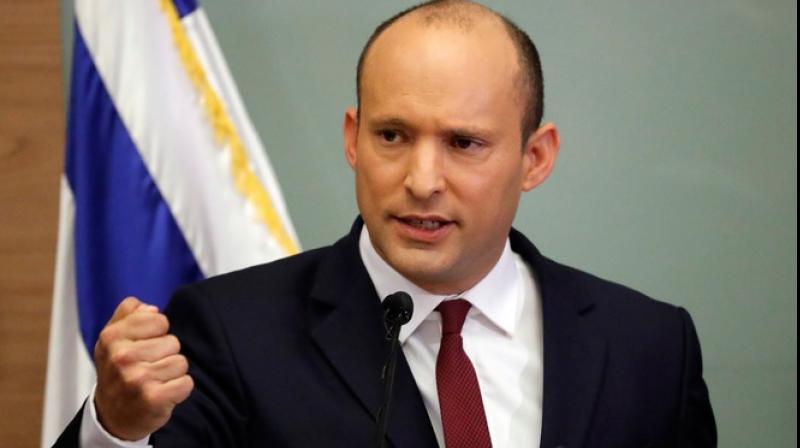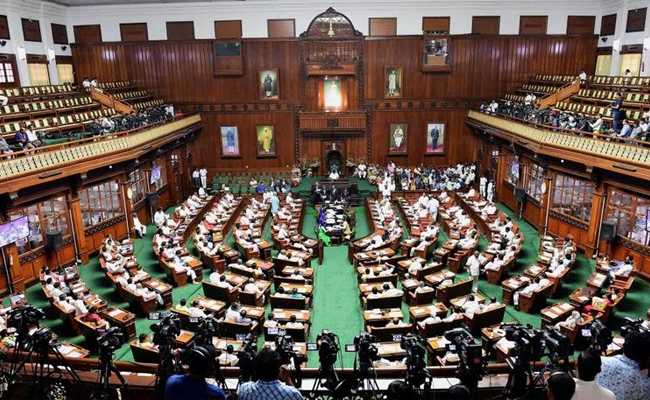Jerusalem, Apr 7: Israel's fragile government on Wednesday was reduced to a minority in the 120-member House with the ruling coalition's whip quitting on religious grounds, raising the possibility of elections in the Jewish nation in less than a year after Prime Minister Naftali Bennett took charge.
Idit Silman of Prime Minister Bennett's Yamina party quit the government, surviving on a razor thin margin, over the question of Jewish values related to a dispute about Passover matzo rules.
"I can no longer serve in a coalition that is adversarial towards the values we all hold dear," Silman said in a letter to the prime minister, urging him also to join forces with the right wing.
The coalition now holds just 60 seats in the 120 member Knesset (Israeli parliament).
Bennett's shaky government remains in power following the defection but will face severe challenges legislating on key issues.
Silman opposed allowing people to bring leavened bread and other foodstuffs into public hospitals -- products prohibited according to religious tradition during the Passover holiday -- leading to a public spat with Health Minister Nitzan Horowitz who had decided to allow entry of such products into hospitals during the Passover, a major Jewish holiday that celebrates the exodus of the Israelites from slavery in Egypt.
For some devout Jews, the mere presence of such foods in the hospital is not kosher, but the country's Supreme Court ruled in 2021 that hospitals could not bar people from doing so.
The coalition, seen by many as an assembly of strange bedfellows from eight political parties of all ideological hues, ranging from Islamists to hard-line nationalists and dovish liberals, was glued together in its opposition to former Prime Minister Benjamin Netanyahu that it wanted to oust from power.
Some members of Bennett's party have been uncomfortable with Yamina's union with Islamist and liberal parties since the government's formation in June last year which has kept his confidantes on their toes permanently.
One of the seven elected members of the party broke ranks at the inception and has maintained his opposition to the coalition.
Bennett rushed to summon Interior Minister Ayelet Shaked, his longtime political partner, and others to ensure they too did not leave his coalition and join hands with the Opposition.
The Knesset is on a break and it remains unclear if the Opposition will now have enough support to hold a no-confidence vote and send Israelis to the spectacle of fifth elections in just over three years' time.
Local media reports talked of Silman striking a deal with Netanyahu over a secure spot in the Likud party list if fresh elections were called, and even the health ministry if the former premier was to form a new government.
Let the Truth be known. If you read VB and like VB, please be a VB Supporter and Help us deliver the Truth to one and all.
Bengaluru: A new 55-bed palliative care centre for terminally ill patients, named the Nemmadi Centre for Palliative Care, will be inaugurated near Nelamangala on Sunday. The facility will offer all services completely free of cost.
According to a report published by Deccan Herald on Saturday, the centre has been set up by the Sukruthi Charitable Trust in collaboration with Rotary Bangalore Midtown. Around Rs 20 crore has been invested in the project, which will operate without a billing counter, ensuring that families do not have to pay for treatment.
ALSO READ: Bengaluru: Shopkeeper stabbed for refusing to serve free panipuri
The centre will provide comprehensive palliative care, including medical support, counselling for patients and their families, and bereavement care. The facility aims to help families cope with the physical and emotional challenges of caring for terminally ill patients.
“A cornerstone of the project was the generous donation of land by former MLC E Krishnappa, which made the centre possible,” DH quoted Palani Loganathan as saying.
The inauguration ceremony will be attended by Madhusudan Sai, founder of the Sri Madhusudan Sai Global Humanitarian Mission, Karnataka Health Minister Dinesh Gundu Rao and Rajya Sabha MP Dr C.N. Manjunath who also serves as the chief medical advisor to the centre will also be present, along with several senior government officials and healthcare leaders.





